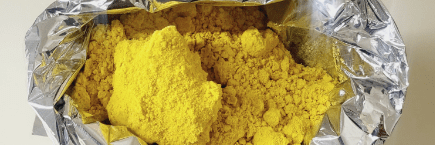The Rise of Synthetic Opioids: A Growing Concern
Understanding the Legal Aspects of Synthetic Opioids Purchase
The rise of Synthetic Opioids Purchase has been a disturbing trend that has caught the attention of healthcare professionals, law enforcement agencies, and policymakers alike. These drugs, which are designed to replicate the effects of natural opioids, have gained popularity due to their potency and accessibility. However, their widespread use has resulted in a growing concern for public health and safety.
Increasing Availability
One of the main reasons why Synthetic Opioids Purchase have become a significant concern is their increasing availability. Unlike natural opioids, which are derived from opium poppies, synthetic opioids are created in laboratories using chemical compounds. This means that their production can be easily scaled up, leading to a larger supply in the illicit drug market. Additionally, the internet has played a crucial role in facilitating the sale and distribution of these drugs, making them readily accessible to a wider range of individuals.
Devastating Impact
Another reason why synthetic opioids have become a cause for alarm is the devastating impact they have on individuals and communities. These drugs are incredibly potent, often many times stronger than natural opioids. As a result, they can easily lead to overdose and death, even in small doses. The high potency of synthetic opioids also makes them highly addictive, putting individuals at a higher risk of developing substance use disorders.
Impact on Communities
The impact of synthetic opioids is not limited to individual users but extends to entire communities. The widespread use of these drugs has contributed to a surge in overdose deaths across the country. According to the Centers for Disease Control and Prevention (CDC), synthetic opioids, particularly fentanyl, were responsible for more than 36,000 overdose deaths in the United States in 2019 alone. These alarming statistics highlight the urgent need for comprehensive strategies to address the synthetic opioid crisis.
Efforts to Combat the Crisis
Efforts to combat the rise of synthetic opioids have focused on multiple fronts. Law enforcement agencies have intensified their efforts to disrupt the production and distribution networks of these drugs. This includes targeting illegal laboratories and apprehending individuals involved in their manufacture and sale. Additionally, healthcare professionals have been working to raise awareness about the dangers of synthetic opioids and provide resources for prevention, treatment, and recovery.
A Multi-Faceted Approach
However, addressing the synthetic opioid crisis requires a multi-faceted approach that goes beyond law enforcement and healthcare. It necessitates a comprehensive strategy that includes public education, community engagement, and policy changes. This includes increasing access to evidence-based treatment programs, implementing harm reduction strategies, and supporting research into alternative pain management options.
The Dangers of Synthetic Opioids
Furthermore, the dangers of synthetic opioids extend beyond their potency and variability. One of the most alarming aspects of these drugs is their ability to be easily disguised and sold as other substances. This deceptive practice puts users at an even greater risk, as they may unknowingly consume a synthetic opioid, thinking it is something else entirely.
Moreover, the synthetic nature of these opioids poses additional risks to users. Unlike natural opioids, which are derived from the opium poppy plant, synthetic opioids are created in a laboratory setting using a combination of chemicals. This means that the effects of these drugs on the body may be different and potentially more harmful than those of natural opioids.
Additionally, the long-term effects of synthetic opioids are still not fully understood. Since these drugs are relatively new to the market, there is limited research on their potential long-term consequences. However, early studies have shown that prolonged use of synthetic opioids can have devastating effects on the brain and other vital organs.
Furthermore, the illicit nature of synthetic opioids makes it difficult for users to seek help or access treatment. Many individuals who become addicted to these drugs may be hesitant to seek assistance due to fear of legal repercussions or social stigma. This lack of support can further exacerbate the dangers associated with synthetic opioids, as individuals may continue to use despite the negative consequences.
The Role of CBS in the Supply Chain
In addition to their commitment to safety, CBS also plays a crucial role in the supply chain of synthetic opioids. As a reputable supplier, they work closely with manufacturers and distributors to ensure a smooth and efficient flow of these medications to those who need them.
One of the key responsibilities of CBS is to carefully vet and select manufacturers that meet their strict criteria for quality and safety. They conduct thorough background checks and inspections to ensure that the manufacturers they work with adhere to industry standards and regulations. By doing so, CBS helps to ensure that the synthetic opioids they supply are produced in facilities that follow good manufacturing practices and comply with all relevant regulations.
Once the manufacturers have been selected, CBS works closely with them to establish a reliable supply chain. This involves coordinating the production and delivery of the synthetic opioids to meet the demand of their customers. CBS maintains regular communication with the manufacturers to ensure that they have a clear understanding of their production capabilities and any potential limitations or delays that may arise.
In addition to their role in the supply chain, CBS also provides valuable support and guidance to their customers. They have a team of knowledgeable and experienced professionals who can answer any questions or concerns that customers may have about the synthetic opioids they purchase. This includes providing information on proper storage and handling, as well as offering guidance on dosage and administration.
Overall, CBS plays a crucial role in the supply of synthetic opioids by ensuring that high-quality products are available to those who need them. Through their commitment to safety, transparency, and efficient supply chain management, they have established themselves as a trusted supplier in the market.
Responsible Use and Education
Furthermore, responsible use of synthetic opioids also includes proper storage and disposal. It is crucial to keep these medications out of the reach of children and individuals who may misuse them. Storing them in a secure location, such as a locked cabinet, can help prevent accidental ingestion or intentional abuse.
When it comes to disposal, it is important to follow the guidelines provided by healthcare professionals or local authorities. Flushing medications down the toilet or throwing them in the trash can be harmful to the environment and may contribute to the misuse of these substances. Many communities have specific drug take-back programs or designated drop-off locations where individuals can safely dispose of unused or expired medications.
In addition to responsible use and proper storage and disposal, education plays a crucial role in preventing the misuse of synthetic opioids. Healthcare professionals should take the time to educate patients about the potential risks and side effects of these medications. This includes discussing the importance of following prescribed dosages, avoiding alcohol or other substances that may interact negatively with opioids, and understanding the signs of overdose.
Furthermore, public awareness campaigns and educational initiatives can help inform the general population about the dangers of synthetic opioids and the resources available for those struggling with addiction. By increasing understanding and reducing stigma, individuals are more likely to seek help and support when needed.
Lastly, responsible use extends beyond the individual level. It is essential for policymakers and healthcare providers to work together to implement regulations and policies that promote the responsible prescribing and dispensing of synthetic opioids. This includes implementing prescription drug monitoring programs to track and prevent doctor shopping, supporting evidence-based treatment options for those struggling with addiction, and ensuring access to naloxone, a medication that can reverse opioid overdose.
In conclusion, while CBS provides a reliable source for synthetic opioids, responsible use is of utmost importance. By consulting with healthcare professionals, recognizing signs of addiction, properly storing and disposing of medications, educating individuals, and implementing effective policies, we can work towards mitigating the risks associated with synthetic opioids and ensuring the safety and well-being of individuals who require these medications.
Hot Selling Synthetic Opioids, Synthetic Cannabinoids, synthetic Benzos and other research chemicals for sale:
| New Alprazolam Powder | Clonazolam | 480 New | Fub raw material | 2F crystalline |
| New Etizolam Powder | Pyrazolam | BisfluoroModafinil | S709 | MFPEP |
| Flubrotizolam Powder | Nitrazolam | 5cl raw materials | 3fpvp | JW-18 New |
| 7bromo-5-pheny | Isotonitazene | adb raw materials | 3brpvp | JW-21 New |
| Deschloroetizolam | Protonitazene | jw18 raw materials | NEH | SGT-263 New |
| Bromazolam | Metonitazene | 5f-abp raw Material | Eutylone | SGT-151 New |
| BMK | Tetracaine | ADB-18 | 5F-ADB-A6L New | SGT-78 New |
| PMK | Dimethocaine | 6BR-ADB New | Xylazine New | BSi-151 |
| Tiletamina | AMB-3DP(CCC) | 5F-abdb-201 | 5F-BPO-033 | 8BRADB-2201 New |
| 6CL | 7F-ADD-AKB New | 1-BCO | Pregabalin | 1-N-Boc |
| Tianeptine Sodium | Tianeptine Sulfate | Tianeptine(Cas 66981-73-5) | n-isopropylbenzylamine | Lidocaine |
| Procaine |
Contact US Now
Telegram Channel: https://t.me/cannabinoidssaless
Telegram Number: +1 (413) 258-1154
Telegram Username: @cannabinoidssale
Whatsapp: +1 (413) 258-1154
Email: healthcareltfse@gmail.com

